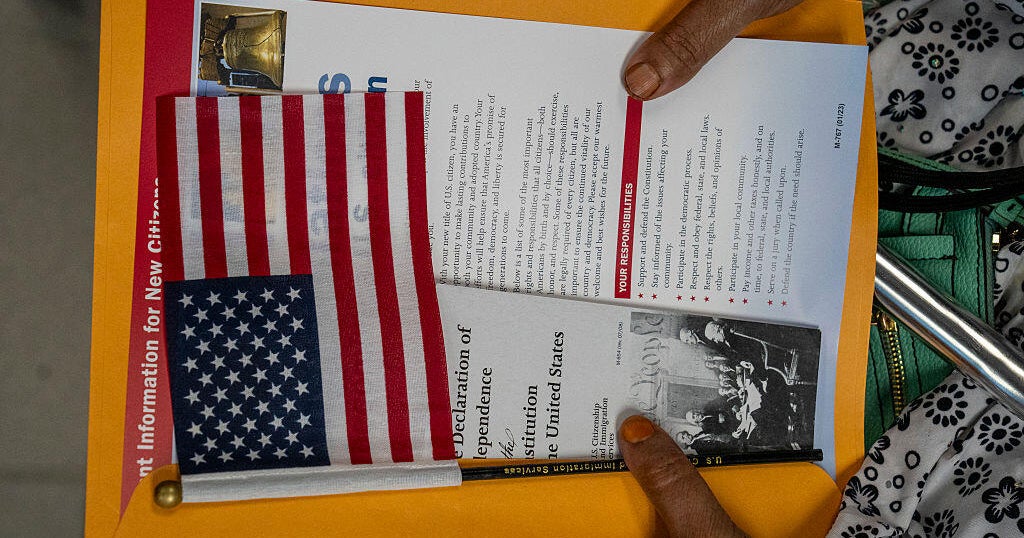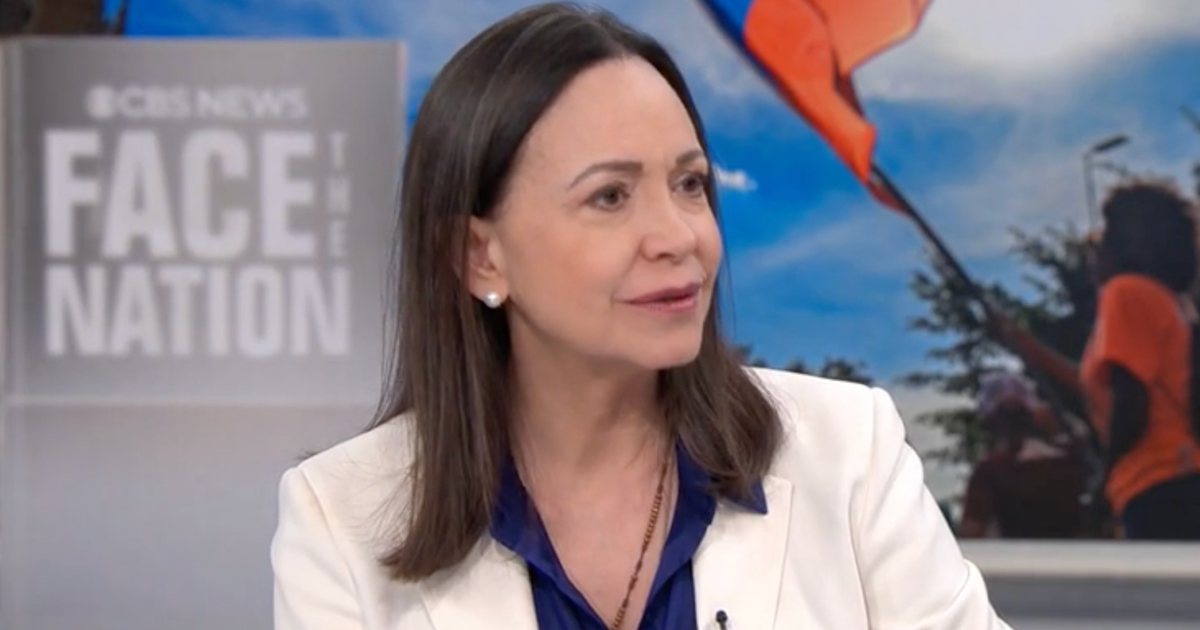

The Trump administration is reinstating a long-dormant practice of conducting "neighborhood checks" to vet immigrants applying for U.S. citizenship, expanding its efforts to aggressively scrutinize immigration applications, according to a government memo obtained by CBS News.
The neighborhood checks would involve on-the-ground investigations by officials at U.S. Citizenship and Immigration Services that could include interviews with the neighbors and coworkers of citizenship applicants.
The government investigations would be conducted to determine if applicants satisfy the requirements for American citizenship, which include showing good moral character, adhering to the U.S. Constitution and being "well-disposed to the good order and happiness of the United States."
To qualify for American citizenship in the first place, applicants typically must have lived in the U.S. for three or five years as legal permanent residents. They must also not have any serious criminal records, and pass a civics and English test. The process is known as naturalization.
The Trump administration's memo upends a decades-old U.S. government policy. While the neighborhood investigations for citizenship cases are outlined in U.S. law, they can also be waived, which the U.S. government has done since 1991, government records show. Since then, the government has relied mainly on background and criminal checks by the FBI to vet citizenship applicants.
The USCIS memo immediately terminated the "general waiver" for neighborhood checks, directing officers to determine whether such investigations are warranted based on the information, or lack thereof, submitted by citizenship applicants. Officers retain the ability to waive the checks, according to the memo.
The directive said USCIS officers will decide whether to carry out a neighborhood investigation by requesting and reviewing testimonial letters from neighbors, employers, coworkers and business associates who know the person applying for U.S. citizenship.
The memo suggested that citizenship applicants should "proactively" submit testimonial letters, to avoid receiving requests for more evidence. The agency said failure or refusal to comply with a request for evidence could lead to a neighborhood investigation and "impact" applicants' ability to show they qualify for U.S. citizenship.
While the Trump administration's campaign to expand arrests of immigrants living in the U.S. illegally is frequently touted by the president and his top officials, its effort to tighten access to the legal immigration system has been implemented with less fanfare.
Over several months, the second Trump administration has frozen the refugee admissions program, ended Biden-era policies that allowed some migrants to enter or stay in the U.S. legally and added additional layers of vetting for legal immigrants requesting immigration benefits like green cards and U.S. citizenship.
In August alone, USCIS said it would more heavily scrutinize the "good moral character" requirement for U.S. citizenship and probe "anti-American" views and activities of those applying for green cards, work permits and other immigration benefits.
The Trump administration has argued the changes are needed to combat fraud and shore up U.S. immigration procedures that it believes become too lax and generous under Democratic administrations.
USCIS Director Joe Edlow, who was confirmed by the Senate earlier this year, said the new memo will "ensure that only the most qualified applicants receive American citizenship."
"Americans should be comforted knowing that USCIS is taking seriously its responsibility to ensure aliens are being properly vetted and are of good moral character, attached to the principles of the Constitution of the United States, and well-disposed to the good order and happiness of the United States," Edlow said in a statement to CBS News.
But pro-immigrant advocates and critics of the Trump administration said its policies are sending a chilling effect to immigrants across the country, legal and illegal alike.
"It sounds to me like the idea is to create a more intimidating atmosphere that discourages people from pursuing naturalization," said Doris Meissner, who oversaw the Immigration and Naturalization Service during the Clinton administration.
The now-defunct INS adjudicated citizenship requests until USCIS was created in 2003. Meissner said the government had largely discontinued neighborhood checks when she became INS commissioner in the 1990s because they were labor intensive and seldom yielded useful information from neighborhoods or other sources. She also said there are other guardrails in place to prevent bad actors from becoming citizens, including background checks.
"It was viewed as one of those anachronistic processes," Meissner added.











-3.png)



